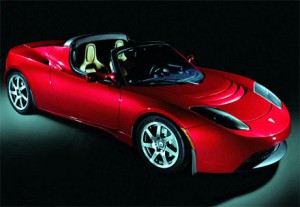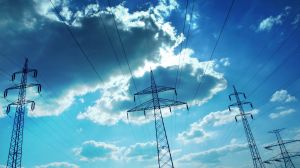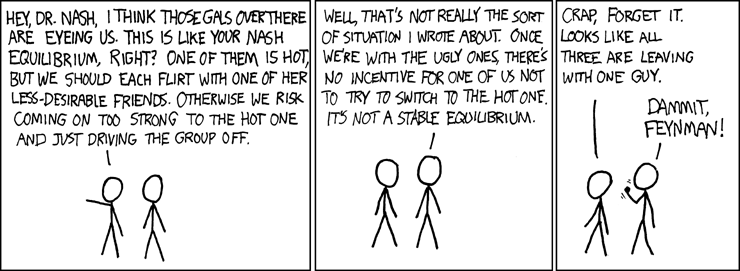No, it’s not a reference to spies who can park well. Or something.
It’s about electrical smart grids. And how we might get the best out of them. But I think some explanation is in order first - hell, I know I had to do some research before being able to explain it…
Firstly, what is a smart grid? Well, it’s not like a smart meter. Smart meters, the subject of much discussion in the first world, basically enable the consumer to get more detailed information about their power (or gas or water) consumption than has previously been possible. Ideally, smart meters can also communicate this data to meter data agencies and service providers, and even directly control the electrical devices in a home, all with the aim of trying to reduce consumption and slow the increase in power (and other resource?) prices. And lower emissions, obviously. Looking at the Wiki entry, as one does, there’s an interesting example of how this works occurring in Italy, which I’m going to be lazy and quote directly:
The world’s largest smart meter deployment was undertaken by Enel SpA, the dominant utility in Italy with over 27 million customers. Between 2000 and 2005 Enel deployed smart meters to its entire customer base.
These meters are fully electronic and smart, with integrated bi-directional communications, advanced power measurement and management capabilities, an integrated, software-controllable disconnect switch, and an all solid-state design. They communicate over low voltage power line using standards-based power line technology from Echelon Corporation to Echelon data concentrators at which point they communicate via IP to Enel’s enterprise servers.
The system provides a wide range of advanced features, including the ability to remotely turn power on or off to a customer, read usage information from a meter, detect a service outage, detect the unauthorized use of electricity, change the maximum amount of electricity that a customer can demand at any time; and remotely change the meter’s billing plan from credit to prepay as well as from flat-rate to multi-tariff.
Smart meters/smart metering are also being rolled out in Japan, Australia, the UK, US, Canada, Netherlands, other Nordic countries, and even here! Yay!
Right, so that’s smart meters. They, in turn, are part of (but can’t entirely compose) smart grids. Which also have other fun names, including, apparently, FutureGrids! (I feel compelled to say that in a superhero voice).

Another important part of smart grids are storage devices. Means of storing electricity so that it can be used when most appropriate. On a house-by-house basis. Such storage devices could take a number of forms. Electric or hybrid vehicles have been proposed as one means of storing electricity, in what’s sometimes called, originally, ‘vehicle to grid’. Ideally, the devices would be able to store electricity for long periods of time, and go through oodles of charge/recharge cycles without a significant degradation in performance.
The point of all this? Well, it would help mitigate peak hour usage, obviating the need for as many “peaking plant” generators, which are expensive and carbon-intensive. So this would cut costs and emissions. Also, and as anyone who uses renewable electricity knows, it would help smooth the process a bit, allowing excess renewable energy to be stored for times when the wind dies/streams (or whatever) are low, etc and not enough renewable energy is being generated. This would be great not only for individual homeowners who make their own power (and currently use car-type batteries and the like), but more important, would mean that renewable energy could be more easily spliced into the grid.
There are problems, of course. The load on the system which could be caused if too many of storage devices come online at the same time to recharge could be immense. It would raise costs and carbon emissions (back to the whole ‘peak’ thing), and could potentially even overload the system, causing blackouts and grid damage. Other issues are the cost-effectiveness of the storage devices themselves, and whether they might drive electricity prices low enough to mean that storing power would be more expensive than simply draining it off the grid. In other words, storage might actually be unprofitable if not managed properly.
So, how to address this? Well, with smart agents, of course! They’re already used in stock markets** and in managing crisis communications. And they could very useful here. In essence, they’re pieces of software with the ability to make certain decisions on their own. Hence the term ‘agents’. The code/software would be installed into smart meters, allowing them to manage the storage, usage and even purchase of a home’s energy. They could look at weather forecasts to adjust a home’s heating/cooling. They could make decisions about which the best price plan is to use for the home’s needs. Etc.
Now, work has already been done looking at how this cleverness could be used to achieve optimum consumption in individual homes. What no one, up until now, has done is to look at how multiple homes operating smart agents and storage devices (and hence forming a smart grid) would interact together and affect each other and the entire grid. Sounds like a game theory situation? It is.
Researchers in the UK have looked at a scenario in which homes outfitted with storage devices and smart agents capable of deciding when to purchase electricity would interact with, and affect, the UK power grid. In their words:
Using this framework, under certain assumptions, we are able to predict the behaviour of the system given that each agent behaves rationally (i.e. always adopts a storage pro file that minimises its costs) and only reacts to a price signal. Building on this, we then go on to devise intelligent agent-based storage strategies that can learn the best storage profi le given the market prices that keep changing as a result of consumers using storage.
Specifically, they posited that Nash equilibria could be used to do so. Nash equilibria are achieved when all the players in a system know each other’s position, and it benefits no one to change their position without getting others to as well.
Now, I’m not going to get into the details of the maths and the scenarios they posited. Why? Because I’m not a mathematician, and I’d rather not try to explain something, than explain it incorrectly. Particularly mathsy stuff. But the conclusion was simple: a Nash equilibrium can be achieved and, in the UK, at least, ownership (and appropriate agent use, of course) of a 4 kWh storage device by some of the population would be great.
Why only some? Well, there’s a point at which individual motives - to save on power bills - aligned best with ‘social welfare’ motives - to cut costs and reduce carbon emissions. Ownership by more than this percentage of people reduced savings to the point where it became cheaper not to store than to store.
The final figures? Ownership at 38% would yield savings of 13% (on average), and final overall savings of £1.5 billion annually…
For me? I’d be curious to see if anyone in NZ would run the model here and share their results.
Reference:
Agent-Based Micro-Storage Management for the Smart Grid, Vytelingum, P., Voice, T. D., Ramchurn, S. D., Rogers, A. and Jennings, N. R. (2010) Agent-Based Micro-Storage Management for the Smart Grid. In: The Ninth International Conference on Autonomous Agents and Multiagent Systems (AAMAS 2010), May 10-14, 2010, Toronto, Canada. (In Press). Nominated for Best Paper Award at AAMAS 2010.
Paper available here.
————————
* Tesla electric cars. Very pretty. Very fast. Very expensive. Lustworthy, basically.
** I realise that may not necessarily be their strongest point


Pingback: Tweets that mention Smart agents for smart grids: an application of game theory | misc.ience -- Topsy.com()
Pingback: The mathematics of war | misc.ience()